by
Mark Mallett
For many years as a young man, I struggled with scrupulosity. For whatever reason, I doubted that God loved me — unless I was perfect. Confession became less a moment of conversion, and more a way to make myself more acceptable to the Heavenly Father. The idea that He could love me, as I am, was very, very difficult for me to accept. Scriptures such as “Be perfect as your heavenly Father is perfect,”[1]Matt 5:48 or “Be holy because I am holy”[2]1 Pet 1:16 only served to make me feel even worse. I am not perfect. I am not holy. Therefore, I must be displeasing to God.
On the contrary, what actually displeases God is a lack of trust in His goodness. St. Paul wrote:
Without faith it is impossible to please him, for anyone who approaches God must believe that he exists and that he rewards those who seek him. (Hebrews 11:6)
Jesus said to St. Faustina:
The flames of mercy are burning Me—clamoring to be spent; I want to keep pouring them out upon souls; souls just don’t want to believe in My goodness. —Jesus to St. Faustina, Divine Mercy in My Soul, Diary, n. 177
Faith is not an intellectual exercise whereby one simply admits the existence of God. Even the devil believes in God, who is hardly pleased with Satan. Rather, faith is a child-like trust and submission to the goodness of God and His plan of salvation. This faith is increased and broadened, simply, by love… the way a son or daughter would love their papa. And therefore, if our faith in God is imperfect, it is nonetheless carried by our desire, that is, our efforts to love God in return.
…love covers a multitude of sins. (1 Pet 4:8)
But what about sin? Doesn’t God hate sin? Yes, absolutely and without reserve. But this does not mean He hates the sinner. Rather, God detests sin precisely because it disfigures His creation. Sin distorts the image of God in which we are created and amounts to misery, sadness, and despondency for the human race. I don’t need to tell you that. We both know the effects of sin in our lives to know this is true. So this is why God gives us His commandments, His divine laws and demands: it is in His Divine Will and harmony with it that the human spirit finds its rest and peace. I think these are my all-time favourite words from St. John Paul II:
Jesus is demanding because He wishes our genuine happiness. —POPE JOHN PAUL II, World Youth Day Message for 2005, Vatican City, Aug. 27th, 2004, Zenit
It actually feels good to sacrifice, to be disciplined, to reject things that are harmful. We feel dignified when we do, and that’s because we are corresponding to who we really are made to be. And God did not make the wonderful things in creation for us not to enjoy them. The fruit of the vine, delicious food, marital intercourse, the smells of nature, the purity of water, the canvas of a sunset… all of it is God’s way of saying, “I created you for these goods.” It’s only when we abuse these things that they become a poison to the soul. Even drinking too much water can kill you, or breathing in too much air too quickly can cause you to pass out. So, it is helpful to know that you should not feel guilt for enjoying life and enjoying creation. And yet, if our fallen nature struggles with certain things, then sometimes it is better to leave these goods aside for the higher good of the peace and harmony of remaining in friendship with God.
And speaking of friendship with God, one of the most healing passages I’ve read in the Catechism (a passage that is a gift to the scrupulous) is the teaching on venial sin. Ever gone to Confession, come home, and lose your patience or fall into an old habit almost without thinking? Satan is right there (isn’t he) saying: “Ah, now you’re no longer clean, no longer pure, no longer holy. You’ve blown it again, you sinner…” But here’s what the Catechism says: that while venial sin weakens charity and the powers of the soul…
…venial sin does not break the covenant with God. With God’s grace, it is humanly reparable. “Venial sin does not deprive the sinner of sanctifying grace, friendship with God, charity, and consequently eternal happiness.” — Catechism of the Catholic Church, n. 1863
How happy I was to read that God is still my friend, even though I ate too much chocolate or lost my cool. Of course, He is sad for me because He still sees that I am enslaved.
Amen, amen, I say to you, everyone who commits sin is a slave of sin. (John 8:34)
But then, it’s precisely the weak and sinful whom Jesus has come to liberate:
The sinner who feels within himself a total deprivation of all that is holy, pure, and solemn because of sin, the sinner who in his own eyes is in utter darkness, severed from the hope of salvation, from the light of life, and from the communion of saints, is himself the friend whom Jesus invited to dinner, the one who was asked to come out from behind the hedges, the one asked to be a partner in His wedding and an heir to God… Whoever is poor, hungry, sinful, fallen or ignorant is the guest of Christ. —Matthew the Poor, The Communion of Love, p.93
To such a one, Jesus Himself says:
O soul steeped in darkness, do not despair. All is not yet lost. Come and confide in your God, who is love and mercy… Let no soul fear to draw near to Me, even though its sins be as scarlet… I cannot punish even the greatest sinner if he makes an appeal to My compassion, but on the contrary, I justify him in My unfathomable and inscrutable mercy. —Jesus to St. Faustina, Divine Mercy in My Soul, Diary, n. 1486, 699, 1146
In closing, then, for those of you who are really struggling to think that Jesus could love someone like you, at the bottom, there is a song I wrote especially for you. But first, in Jesus’ own words, this is how He looks at this poor, fallen humanity — even now…
I do not want to punish aching mankind, but I desire to heal it, pressing it to My Merciful Heart. I use punishment when they themselves force Me to do so; My hand is reluctant to take hold of the sword of justice. Before the Day of Justice I am sending the Day of Mercy. —Jesus to St. Faustina, Divine Mercy in My Soul, Diary, n. 1588
I feel sad when they think that I am severe, and that I make more use of Justice than of Mercy. They are with Me as if I were to strike them in each thing. Oh, how dishonored I feel by these ones! In fact, this leads them to remain at due distance from Me, and one who is distant cannot receive all the fusion of My Love. And while they are the ones who do not love Me, they think that I am severe and almost a Being that strikes fear; while by just taking a look at My life they can only notice that I did only one act of Justice – when, in order to defend the house of My Father, I took the ropes and snapped them to the right and to the left, to drive out the profanators. All the rest was only Mercy: Mercy My conception, My birth, My words, My works, My steps, the Blood I shed, My pains — everything in Me was Merciful Love. Yet, they fear Me, while they should fear themselves more than Me. —Jesus to Servant of God Luisa Piccarreta, June 9th, 1922; Volume 14


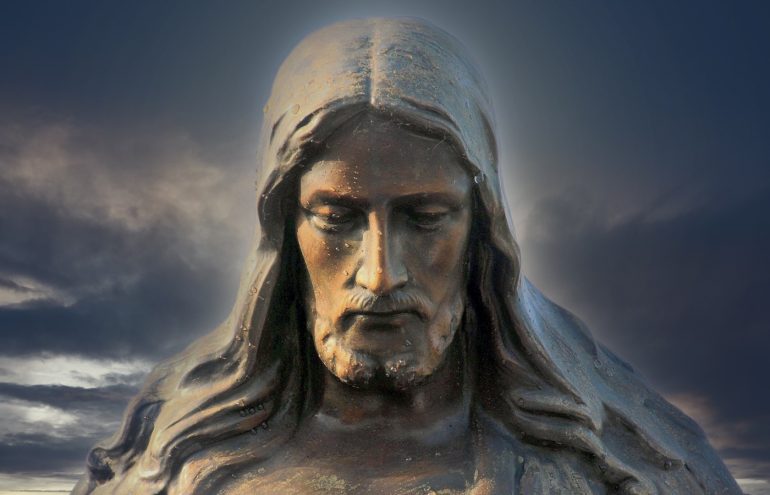

 Alicja Lenczewska
Alicja Lenczewska



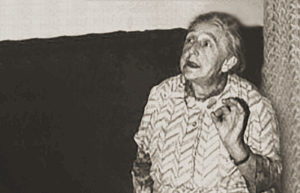 Elizabeth Kindelmann
Elizabeth Kindelmann Through what became The Spiritual Diary, Jesus and Mary taught Elizabeth, and they continue to instruct the faithful in the divine art of suffering for the salvation of souls. Tasks are assigned for each day of the week, which involve prayer, fasting, and night vigils, with beautiful promises attached to them, laced with special graces for priests and the souls in purgatory. In their messages, Jesus and Mary say that The Flame of Love of the Immaculate Heart of Mary is the greatest grace given to mankind since the Incarnation. And in the not-so-distant future, her flame will engulf the entire world.
Through what became The Spiritual Diary, Jesus and Mary taught Elizabeth, and they continue to instruct the faithful in the divine art of suffering for the salvation of souls. Tasks are assigned for each day of the week, which involve prayer, fasting, and night vigils, with beautiful promises attached to them, laced with special graces for priests and the souls in purgatory. In their messages, Jesus and Mary say that The Flame of Love of the Immaculate Heart of Mary is the greatest grace given to mankind since the Incarnation. And in the not-so-distant future, her flame will engulf the entire world. Father Stefano Gobbi
Father Stefano Gobbi Why Gisella Cardia?
Why Gisella Cardia? Thirdly, the messages have frequently been accompanied by visible phenomena, photographic evidence found in In Cammino con Maria, which cannot be the fruit of subjective imagination, notably the presence of the stigmata on Giselle’s body and and the appearance of crosses or religious texts in blood on Gisella’s arms. See the pictures taken from her apparition website
Thirdly, the messages have frequently been accompanied by visible phenomena, photographic evidence found in In Cammino con Maria, which cannot be the fruit of subjective imagination, notably the presence of the stigmata on Giselle’s body and and the appearance of crosses or religious texts in blood on Gisella’s arms. See the pictures taken from her apparition website 
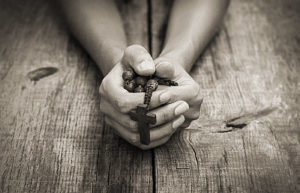 Jennifer
Jennifer

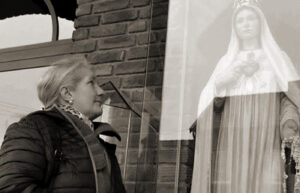 Why Manuela Strack?
Why Manuela Strack?

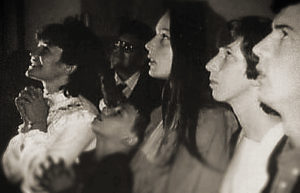 Why the Visionaries of Our Lady of Medjugorje?
Why the Visionaries of Our Lady of Medjugorje? Why Pedro Regis?
Why Pedro Regis? Why the Servant of God Luisa Piccarreta?
Why the Servant of God Luisa Piccarreta? of the saints. It wasn’t until she became a “Daughter of Mary” that the nightmares finally ceased at the age of eleven. In the following year, Jesus began to speak interiorly to her especially after receiving Holy Communion. When she was thirteen, He appeared to her in a vision that she witnessed from the balcony of her home. There, in the street below, she saw a crowd and armed soldiers leading three prisoners; she recognized Jesus as one of them. When He arrived beneath her balcony, He raised his head and cried out: “Soul, help Me!” Deeply moved, Luisa offered herself from that day on as a victim soul in expiation for the sins of mankind.
of the saints. It wasn’t until she became a “Daughter of Mary” that the nightmares finally ceased at the age of eleven. In the following year, Jesus began to speak interiorly to her especially after receiving Holy Communion. When she was thirteen, He appeared to her in a vision that she witnessed from the balcony of her home. There, in the street below, she saw a crowd and armed soldiers leading three prisoners; she recognized Jesus as one of them. When He arrived beneath her balcony, He raised his head and cried out: “Soul, help Me!” Deeply moved, Luisa offered herself from that day on as a victim soul in expiation for the sins of mankind. immobile, rigid-like state that appeared almost as if she were dead. It was only when a priest made the sign of the Cross over her body that Luisa regained her faculties. This remarkable mystical state persisted until her death in 1947—followed by a funeral that was no little affair. During that period in her life, she suffered no physical illness (until she succumbed to pneumonia at the end) and she never experienced bedsores, despite being confined to her little bed for sixty-four years.
immobile, rigid-like state that appeared almost as if she were dead. It was only when a priest made the sign of the Cross over her body that Luisa regained her faculties. This remarkable mystical state persisted until her death in 1947—followed by a funeral that was no little affair. During that period in her life, she suffered no physical illness (until she succumbed to pneumonia at the end) and she never experienced bedsores, despite being confined to her little bed for sixty-four years. Why Simona and Angela?
Why Simona and Angela?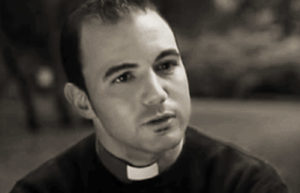
 Valeria Copponi
Valeria Copponi